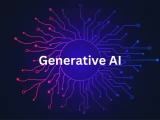
ChatGPT Alternatives: A Closer Look
December 6, 2024Discover a curated list of ChatGPT alternatives designed to enhance productivity and streamline your tasks.
Since its launch in late 2022, ChatGPT has revolutionized AI-driven communication. Developed by OpenAI, this powerful conversational agent excels in understanding and generating human-like text. With countless applications, ChatGPT became the fastest-growing web application in history, amassing 100 million users within just two months.
If you’re curious about ChatGPT’s potential for data science, check out our tutorial on leveraging ChatGPT for data science projects. For hands-on experience with a variety of use cases, we recommend our Introduction to ChatGPT course.
While ChatGPT is the leading generative AI tool, it’s far from the only option. Many cutting-edge AI tools are driving the ongoing AI revolution, and as this article highlights, there are compelling reasons to explore alternatives.
Here, we present a list of 10 top ChatGPT alternatives that excel across diverse tasks. Drawing insights from our previous coverage of the Generative AI Tool Landscape, this selection focuses on tools that go beyond ChatGPT’s capabilities.
Microsoft Copilot
Designed as an interactive chat experience, Microsoft Copilot stands out for its ability to deliver real-time results backed by cited sources, ensuring credibility. The platform is available for free, making it accessible to a wide range of users. However, it comes with limitations, including a restricted number of prompts per session and occasional slow response times. Like other large language models (LLMs), Copilot is not immune to inaccuracies and biases, which users should keep in mind.
Google Gemini (formerly Google Bard)
Google Gemini, developed by Google DeepMind, is a powerful suite of AI models designed to rival ChatGPT. It seamlessly handles both text and images, incorporating a memory system and APIs for real-time data access. This versatility makes it ideal for applications requiring advanced AI capabilities, such as conversational agents and multimodal tasks.
Claude 3.5 Sonnet
Claude 3.5 Sonnet, developed by Anthropic, is a cutting-edge language model engineered for tackling complex language tasks with improved efficiency and contextual comprehension. Renowned for its advanced reasoning abilities and emphasis on ethical AI principles, it excels in generating detailed and coherent responses. This makes it an excellent choice for a wide range of applications, from conversational interfaces to creative content generation, while prioritizing safety and reliability.
Developers can also access Claude 3.5 Sonnet via its API, making it a versatile tool for integrating AI into various projects.
Perplexity
Powered by the OpenAI API, Perplexity AI serves as a strong alternative to ChatGPT. Its minimalist design ensures a seamless conversational experience. The free version, which operates on Claude 3 Haiku, does not require account creation, while the ‘Pro’ version grants access to GPT-4 and additional features.
Perplexity functions as an AI-driven search engine and conversational assistant, delivering direct answers to queries by summarizing and citing relevant web information. Designed to tackle authenticity and copyright concerns often associated with ChatGPT, it includes source citations in all responses.
Perplexity Pro
Perplexity also offers a premium Pro version powered by GPT-4. This subscription includes access to Copilot, an interactive search assistant that enhances the AI search process by asking clarifying questions to help refine queries and deliver the most accurate answers.
ChatSonic
Positioned as a conversational AI designed to overcome ChatGPT’s limitations, ChatSonic is an excellent choice for content creation and creative tasks.
The latest iteration of ChatSonic, powered by GPT-4 and Google Search, provides real-time information updates. It also supports multimodal responses and offers personalized answers tailored through avatar-based interactions.
ChatSonic supports multimodal responses and offers personalized answers using avatars.
However, compared to ChatGPT, its interface can feel more complex and cluttered. Additionally, conversations may be slower, and the tool sometimes struggles to maintain focus during extended exchanges.
While ChatSonic markets itself as a free alternative to ChatGPT, the free version is limited to 10,000 words per month. Unlocking its full capabilities requires a paid subscription.
Poe
What if you could access multiple AI chatbots like ChatGPT, Bing, and Bard in one place, switching seamlessly between them? That’s exactly the concept behind Poe.
Developed by Quora, Poe integrates advanced models such as GPT-3.5-Turbo, GPT-4, Claude+, LLaMA 2, and PaLM, among others. It also allows users to create personalized chatbots by defining initial prompts.
Poe is fast, user-friendly, and delivers precise answers. Its unique feature enables prompts to be shared across different chatbots, akin to sending the same message to multiple friends on WhatsApp.
Although Poe offers a free version, accessing all its AI models without restrictions requires a premium subscription.
Pi
Created by Inflection AI, Pi is a personal AI assistant designed to be intelligent, supportive, and consistently available. Short for “personal intelligence,” Pi is tailored to adapt its behavior to align with users’ individual interests and needs.
Pi stands out as one of the most innovative ChatGPT alternatives. Designed with smartphones in mind, it is accessible on popular platforms such as WhatsApp, Facebook, and Instagram, as well as through its dedicated iOS app and website. Additionally, Pi allows users to communicate via voice, featuring charming and soothing tones for a more personal experience.
Despite its promise, Pi is still in its early stages of development. It may produce inaccuracies (hallucinations) and struggles to handle complex queries or support languages other than English. Furthermore, it lacks knowledge of events beyond November 2022. Currently, Pi is exclusive to Apple users, leaving Android users to wait for future compatibility.
Amazon CodeWhisperer
Amazon CodeWhisperer is another standout AI-powered coding assistant, comparable to GitHub Copilot. Trained on a vast dataset of open-source code and repositories hosted on Amazon servers, CodeWhisperer provides coding suggestions, security checks, and other valuable features.
As an Amazon product, it is especially well-suited for developers working with Amazon services. However, it also integrates seamlessly with popular integrated development environments (IDEs) like JupyterLab, VS Code, and PyCharm, excelling with programming languages such as Python, Java, and JavaScript. A significant advantage is that CodeWhisperer is available for free to developers worldwide.
Notably, CodeWhisperer includes source citations for its code suggestions, ensuring proper attribution and bolstering security.
Compared to GitHub Copilot, Amazon CodeWhisperer supports a narrower range of programming languages and offers fewer integration options.
Jasper AI
For professionals in marketing, SEO, or related fields, Jasper AI is an excellent choice. Developed by Jasper, an AI-driven platform for businesses, Jasper AI is a conversational chatbot designed to assist with a wide range of content creation tasks. These include crafting blog posts, brainstorming titles, editing emails to reflect specific tones, or even writing love letters.
Powered by leading LLMs such as OpenAI’s GPT-4, Claude, and Google’s models, Jasper AI stands out with its ability to adapt to your unique voice, ensuring brand consistency. It’s a highly efficient tool capable of producing complete, polished content in seconds, leveraging over 50 specialized templates tailored for various use cases. Additionally, Jasper AI supports more than 30 languages, making it ideal for launching global marketing campaigns across multiple regions.
While Jasper AI excels in content creation, it falls short when addressing more technical queries. Users have noted that responses can occasionally be generic or repetitive, requiring thorough fact-checking. Additionally, Jasper lacks a free version, with subscription plans starting at $39/month.
DataLab
Lastly, let’s explore the DataLab AI Assistant. Recently integrated into the DataLab data science notebook, this tool builds on DataLab’s mission of data democratization. Initially popular among learners creating portfolios for data science careers, it has grown into a valuable resource for team collaboration and organizational learning across industries.
The new AI Assistant enhances accessibility and productivity for data practitioners. Features like the “Fix Error” button not only resolve coding issues but also provide detailed explanations, making it an excellent tool for educational purposes. The “Generate Code” feature translates natural language queries into functional code and answers critical questions about datasets. Furthermore, the AI Assistant offers intelligent suggestions based on existing code and context, streamlining the coding process and improving efficiency.
ChatGPT Alternatives Overview
Below is a table summarizing the top 10 ChatGPT alternatives:
| Name | Created by | Main Function | Pros | Cons |
|---|---|---|---|---|
| Bing AI | OpenAI and Microsoft | AI-based search engine | Powered by GPT-4, up-to-date information, free, supports multimodality | May provide inaccurate results, limited prompts per session |
| Google Bard | AI-based search engine | Powered by PaLM 2, up-to-date information, good for coding, free | Delivers partial potential, overall lower performance than ChatGPT | |
| Claude | Anthropic | AI chatbot for multiple domains | High performance, trained in AI ethics | No free version, lacks up-to-date replies |
| Perplexity | Perplexity AI | Open-source LLM for AI research | Provides sources and references, excels in various tasks, minimalist interface, free version | May produce inconsistent or mixed responses, limited problem-solving capabilities |
| ChatSonic | WriteSonic | Conversational AI for creative tasks | Powered by GPT-4, multimodality, customized replies, free version | Confusing interface, slow speed, requires premium for advanced features |
| Poe | Quora | Universal chatbot combining LLMs | All-in-one AI app, fast, seamless chatbot switching, free version | Free version has limited capabilities, premium version is costly |
| Pi | Inflection | Personal AI assistant | Smartphone-oriented, talking capabilities, adaptable behavior | Struggles with complex questions, hallucinations, not available on Android |
| Amazon CodeWhisperer | Amazon | AI coding assistant | High performance in key programming languages, provides code references, free | Limited language support, narrower language range compared to GitHub Copilot |
| Jasper | Jasper | AI writer for content creation | Great for marketers, 50+ templates, trained in 30+ languages | No free plan, struggles with technical queries, repetitive/generic responses, requires fact-checking |
| DataLab | DataCamp | AI coding assistant for data science | Easy to use, supports all data science languages, error explanations, available on free tier | May experience hallucinations, similar limitations to other LLMs |
This table highlights key features, advantages, and limitations, helping you choose the best alternative for your needs.
Choosing the Best ChatGPT Alternative
We hope you found our list of the top 10 ChatGPT alternatives helpful. The AI industry is rapidly evolving, with new generative AI models entering the market every day.
These are exciting times, but the growing number of options can make choosing the right tool challenging. As outlined, each model has its strengths and limitations. Exploring these tools firsthand and reviewing user feedback is the best way to determine which one aligns with your needs—and fits within your budget.

















